Beneficial effects of organic acids in high stocking density broiler production
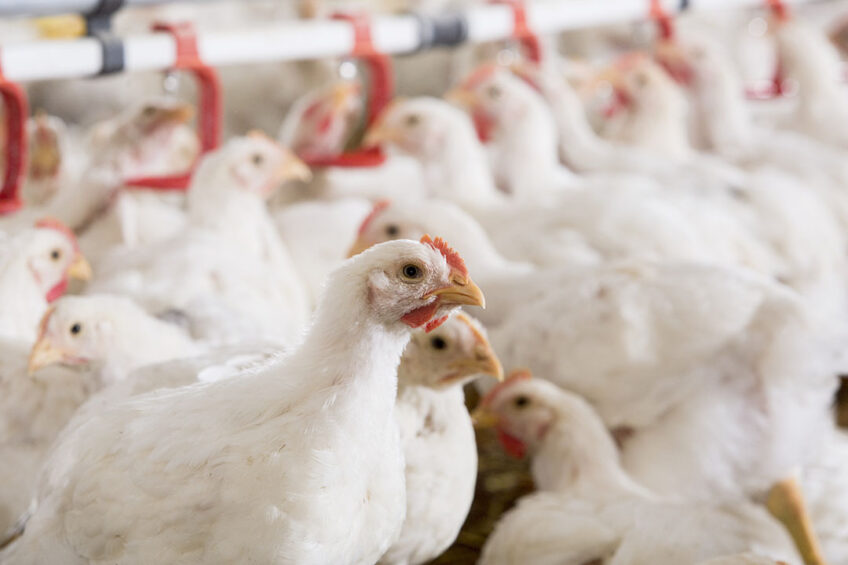
The stocking density for broilers can vary significantly depending on bird size, nutrition, breed, feeder space, drinker space, house dimensions, bird welfare and economic return. Nowadays, modern broiler houses allow for higher densities as long as the environment is maintained correctly. The use of organic acids can further mitigate inflammation responses, restore gut health and growth performance.
A high stock density (HSD) in broiler production is often employed in intensive or commercial poultry farming to maximise production efficiency and optimise the use of resources, such as space, feed and labour. While HSD can lead to increased production, it also can contribute to several important challenges, such as respiratory issues, increased stress and aggression, impaired gut health and leg disorders, all affecting bird health and well-being.
Producers need to find a balance between maximising production and ensuring the health – and welfare – of the animals by employing proper management practices, including adequate ventilation, disease control and appropriate nutrition, to manage the challenges associated with HSD in broiler production. Supplementing feed additives in the diet may be one strategy to achieve the goal of maximising the weight of chicken produced per square metre, while preventing production losses due to overcrowding.
Organic acids have been found to ameliorate the negative effects of high stocking density stress in broilers through the restoration of intestinal microbiota, inflammation reduction, inhibition of the NF-kB signaling pathway and an increase in short-chain fatty acid production. Researchers used a smart blend of short and medium-chain fatty acids to develop Selko’s Selacid Green Growth. Included in the broiler feed it offers a tool to more effectively manage stress, maintain gut health and achieve growth performance.
Cost of HSD stress
Poultry raised in HSD production systems are exposed to increased stress which can negatively affect production efficiency and growth. Stressed birds can display increased inflammation and impairment of gut health which can lead to leaky gut or damage to the tight junctions, allowing harmful bacteria to enter into the bloodstream.
HSD can negatively affect gut microbiota balance and lead to dysbiosis which could result in increased use of antibiotics. Dysbiosis in broilers has been estimated to impede feed conversion (FCR) by about 0.05, on average, without considering coccidiosis. Given the challenges presented by HSD systems, it is important to find alternative solutions to maintain bird health and growth in the face of production stress and without preventive reliance on antibiotics.
Putting acids to work
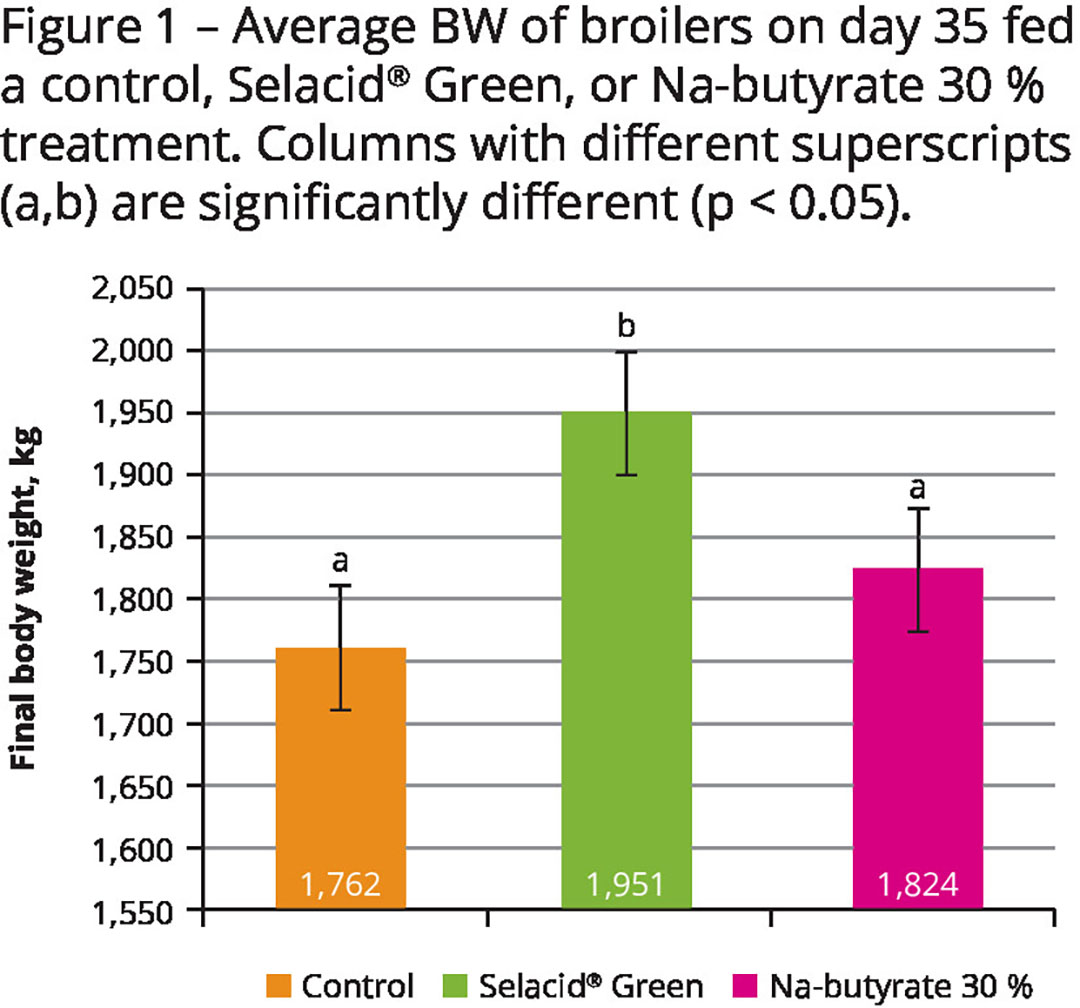 Adding organic acids to broiler diets could help decrease chyme pH in the upper digestive tract and increase the activity of digestive enzymes. This acidification results in a lower pathogen load and can support the establishment of beneficial bacteria throughout the intestinal tract.
Adding organic acids to broiler diets could help decrease chyme pH in the upper digestive tract and increase the activity of digestive enzymes. This acidification results in a lower pathogen load and can support the establishment of beneficial bacteria throughout the intestinal tract.The crop acts as the first place of fermentation within the gastrointestinal tract and its pH may be influenced by feed ingredients and play a role in providing desirable conditions for beneficial bacteria and undesirable conditions for pathogens. In addition, diets with a high buffer capacity may limit the acidity in the foregut, permitting pathogenic bacteria to proliferate, as well as reducing the activity of digestive enzymes, thereby allowing more undigested protein to reach the hindgut and creating inflammation and gut health issues.
This situation may also reduce bird performance and lead to wet litter. As a preventative strategy, adding organic acids can help the foregut maintain the acidity level needed to support ‘good’ bacteria and resist colonisation by pathogenic bacteria, as well as improve nutrient utilisation in broilers.
What the science says
In a study which looked at the effect of high stocking density on poultry production with a basal diet and a diet supplemented with organic acids, 528 birds were split into 3 production systems. One group was raised in a low stocking density environment (positive control), a second group in a high stocking density environment (negative control), and a third group in a high stocking density situation where the diet was supplemented with a blended organic acid feed additive. Birds were assessed for growth performance, intestinal barrier and intestinal microbiota, microbial metabolites and stress response indicators.
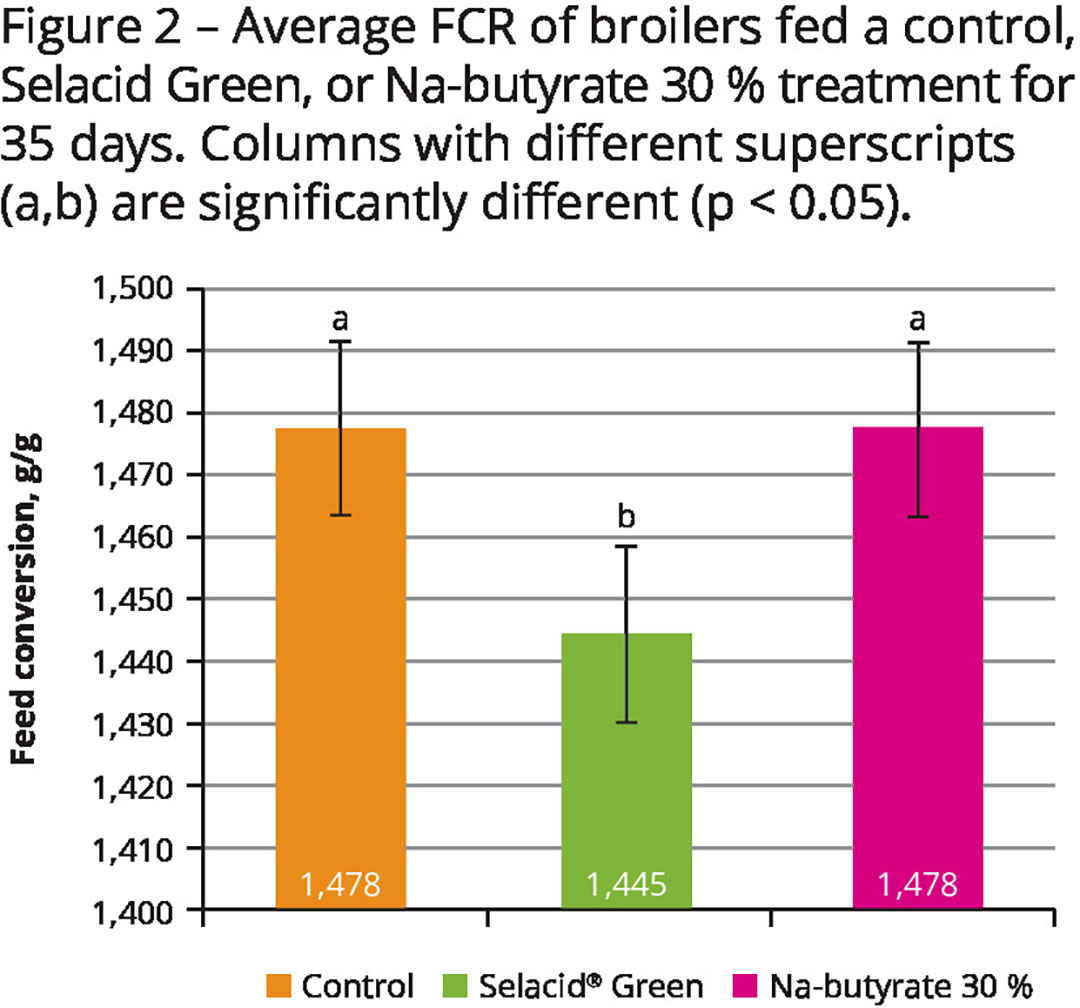 Non-supplemented birds raised in the HSD situation showed increased levels of several stress indicators, including higher levels of serum corticosterone lipopolysaccharides, interleukin-1 β, tumour necrosis factor-α, and a down-regulated expression of ZO-1, which can hamper growth performance. By comparison, bird diets supplemented with the organic acid blend (Selacid Green Growth) resulted in lower levels of serum corticosterone, lipopolysaccharides, interleukin-1β, and tumour necrosis factor-α, along with up-regulated interleukin-10, mRNA expression of ZO-1, and improved growth performance compared to the negative control group birds. Additionally, supplemented birds showed an increase in the amount of Bacteroidetes and restored the balance of the microbial ecosystem compared to the stressed, non-supplemented birds. Birds receiving the organic acid blend also showed higher levels of acetic and butyric acids which have a significant correlation with intestinal inflammation indicators.
Non-supplemented birds raised in the HSD situation showed increased levels of several stress indicators, including higher levels of serum corticosterone lipopolysaccharides, interleukin-1 β, tumour necrosis factor-α, and a down-regulated expression of ZO-1, which can hamper growth performance. By comparison, bird diets supplemented with the organic acid blend (Selacid Green Growth) resulted in lower levels of serum corticosterone, lipopolysaccharides, interleukin-1β, and tumour necrosis factor-α, along with up-regulated interleukin-10, mRNA expression of ZO-1, and improved growth performance compared to the negative control group birds. Additionally, supplemented birds showed an increase in the amount of Bacteroidetes and restored the balance of the microbial ecosystem compared to the stressed, non-supplemented birds. Birds receiving the organic acid blend also showed higher levels of acetic and butyric acids which have a significant correlation with intestinal inflammation indicators.
Overall, the trial demonstrated that Selacid Green Growth can play a role in mediating HSD-induced inflammatory responses and restoring gut microbial composition and growth performance, which suggests the positive impact of a nutritional strategy to alleviate HSD-induced stress in broilers.
Blending for effect, efficiency and economics
In a second trial, broiler growth performance and feed conversion were examined for 975 birds in antibiotic-free production. Birds received one of 3 diets – a control feed, a feed supplemented with a sodium-butyrate additive, or feed that included an organic acid blend – for 35 days. Broilers fed the organic acid-supplemented feed showed an improved feed conversion ratio, a better European Production Efficiency Factor (EPEF) and had a higher average body weight at the end of the trial. The EPEF or European broiler index is a production indicator calculated using average daily gain, percentage survival rate, feed conversion ratio, excluding first week mortality.
References available on request.
Join 31,000+ subscribers
Subscribe to our newsletter to stay updated about all the need-to-know content in the poultry sector, three times a week. Beheer
Beheer

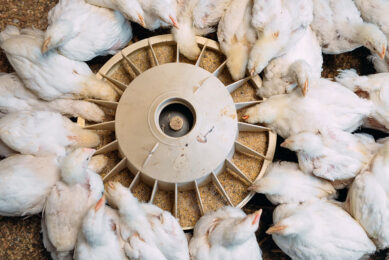
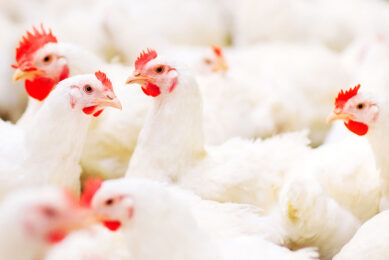
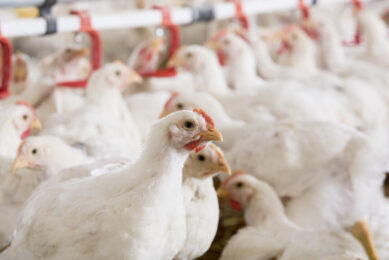
 WP Admin
WP Admin  Bewerk bericht
Bewerk bericht